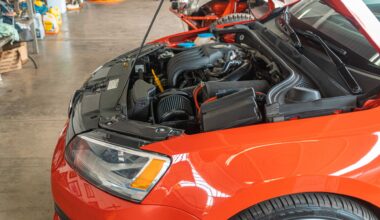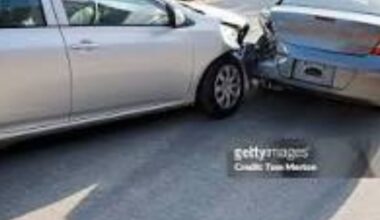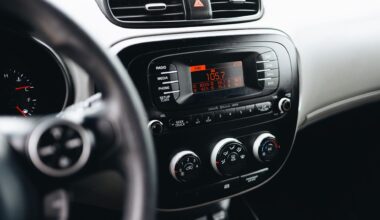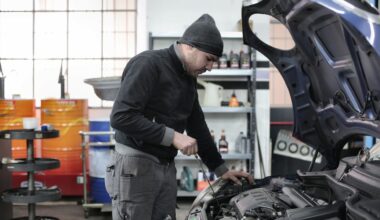In the modern era, cars are marvels of engineering, with sophisticated systems and components working seamlessly to provide us with smooth and reliable transportation.
However, just like any mechanical or electronic device, cars are not immune to malfunctions or tampering. Whether due to accidents, malicious intent, or technical issues, every car owner needs to be aware of signs indicating that their vehicle has been disabled.
In this comprehensive guide, we’ll explore 13 signs on how to know if your car has been disabled and provide practical solutions to address these issues.
How to know if your Car has been Disabled
1. Unusual Dashboard Warning Lights
Dashboard warning lights serve as your car’s early warning system, signaling potential problems with various systems such as the engine, brakes, or transmission. If you notice unusual warning lights illuminated on your dashboard, especially those you haven’t seen before, it could indicate tampering or malfunctioning components.
Solution: Consult your car’s manual to identify the meaning of the warning lights. If you’re unsure, it’s best to seek professional assistance from a certified mechanic or technician to diagnose and rectify the issue.
2. Sudden Loss of Power
Experiencing a sudden loss of power while driving can be alarming and dangerous. Whether your car stalls, struggles to accelerate, or loses power altogether, it’s crucial to address this issue promptly.
Solution: If safe to do so, pull over to the side of the road and check for any obvious signs of damage or tampering under the hood. Inspect the engine, fuel system, and electrical connections for any loose or disconnected components. If you cannot identify the problem, have your car towed to a reputable auto repair shop for further diagnosis and repairs.
3. Difficulty Starting the Engine
Difficulty starting the engine is a common issue that can be caused by various factors, including a weak battery, faulty starter motor, or fuel system problems. However, if you’ve recently had your car serviced or parked it in a secure location, difficulty starting the engine could indicate tampering or disabling attempts.
Solution: Check the battery terminals for corrosion or looseness and ensure the fuel tank has an adequate supply of fuel. If the problem persists, consider having your car inspected by a professional to rule out any tampering or disabling attempts.
4. Strange Noises or Vibrations
Unusual noises or vibrations coming from your car can be indicative of underlying mechanical issues or tampering. Whether it’s a knocking sound from the engine, squealing brakes, or vibrations while driving, these signs should not be ignored.
Solution: Pay attention to the type and location of the noise or vibration and try to pinpoint its source. If the issue persists or worsens, schedule a diagnostic appointment with a qualified mechanic to identify and address the problem promptly.
5. Unexpected Changes in Fuel Efficiency
Monitoring your car’s fuel efficiency is essential for detecting potential issues with the engine or fuel system. If you notice a sudden decrease in fuel efficiency without any changes in driving habits or environmental conditions, it could indicate tampering or malfunctioning components.
Solution: Keep track of your car’s fuel consumption and note any significant deviations from the norm. If you suspect foul play or tampering, have your car inspected by a trusted mechanic to identify the underlying cause.
6. Malfunctioning Electrical Systems
Modern cars rely heavily on complex electrical systems to operate various functions, including lights, entertainment systems, and safety features. If you experience issues with multiple electrical components simultaneously, it could indicate tampering or disabling attempts.
Solution: Inspect the fuse box for any blown fuses and check the battery connections for tightness and corrosion. If the problem persists, consult a qualified auto electrician to diagnose and rectify the issue.
7. Difficulty Shifting Gears
Difficulty shifting gears in a manual or automatic transmission car can be a sign of transmission problems or tampering. Whether you experience grinding noises, slipping gears, or resistance while shifting, it’s essential to address the issue promptly to avoid further damage.
Solution: Check the transmission fluid level and condition according to your car’s manual and ensure it’s within the recommended range. If the problem persists, consult a transmission specialist to diagnose and repair any underlying issues.
8. Unresponsive Brakes
Brake problems pose a significant safety risk to drivers and passengers alike. If you notice your brakes feeling spongy, unresponsive, or making unusual noises, it’s crucial to address the issue promptly to ensure your safety on the road.
Solution: Check the brake fluid level and inspect the brake pads and rotors for wear and tear. If you’re unable to identify the problem, have your car inspected by a qualified mechanic to diagnose and repair any brake-related issues.
9. Altered Exterior Appearance
Physical alterations to your car’s exterior, such as scratched paint, broken windows, or tampered locks, could indicate attempted theft or vandalism. These signs should not be ignored, as they may suggest that your car has been disabled or tampered with.
Solution: Inspect your car for any signs of forced entry or tampering, including scratches around the door locks or windows. If you suspect foul play, contact your local law enforcement agency and report the incident immediately.
10. Inconsistent Tire Pressure
Maintaining proper tire pressure is essential for optimal fuel efficiency, handling, and safety. If you notice consistent fluctuations in tire pressure or one tire deflating rapidly, it could indicate tampering or punctures.
Solution: Check your tire pressure regularly using a reliable tire pressure gauge and ensure it matches the manufacturer’s recommended specifications. If you suspect a puncture or tampering, inspect the affected tire for any visible damage and have it repaired or replaced as needed.
11. Abnormal Exhaust Emissions
Unusual exhaust emissions, such as excessive smoke, strange odors, or unusual noises, could indicate underlying issues with the engine or exhaust system. These signs should not be ignored, as they may suggest tampering or malfunctioning components.
Solution: Pay attention to the color, consistency, and smell of your car’s exhaust emissions and note any significant deviations from the norm. If you suspect a problem, have your car inspected by a qualified mechanic to identify and address the issue promptly.
12. Unusual Odors Inside the Cabin
Strange odors inside your car’s cabin, such as burning smells, moldy odors, or gasoline fumes, could indicate various issues ranging from mechanical problems to health hazards. These signs should be investigated promptly to ensure your safety and comfort while driving.
Solution: Inspect your car’s interior for any signs of leaks, spills, or damage that could be causing the unusual odors. If the problem persists, have your car inspected by a qualified mechanic to identify and address the underlying cause.
13. Tampering with Anti-Theft Systems
Modern cars are equipped with sophisticated anti-theft systems designed to deter theft and unauthorized access. If you notice signs of tampering with your car’s security features, such as broken locks, cut wires, or flashing lights, it could indicate attempted theft or disabling.
Solution: Activate your car’s alarm system and inspect the exterior for any signs of forced entry or tampering. If you suspect foul play, contact your local law enforcement agency and report the incident immediately.
Frequently Asked Questions (FAQs)
Q1. Can I detect if my car has been remotely disabled?
A1: Detecting remote disabling of a car can be challenging without specialized equipment. However, if you notice sudden changes in your car’s behavior, such as loss of power or unresponsiveness to controls, it’s essential to have your vehicle inspected by a professional to rule out any tampering or technical issues.
Q2. What should I do if I suspect my car has been tampered with or disabled?
A2: If you suspect that your car has been tampered with or disabled, it’s crucial to prioritize your safety and take immediate action. Contact your local law enforcement agency to report the incident and seek their assistance in investigating the matter.
Additionally, have your car inspected by a qualified mechanic to assess any damage or tampering and take appropriate measures to restore its functionality.
Q3. How can I prevent my car from being disabled or tampered with?
A3: While it’s impossible to guarantee complete protection against theft or tampering, there are several measures you can take to reduce the risk.
Invest in a reliable car alarm system with anti-theft features, park your car in well-lit and secure areas, install a GPS tracking device for added security, and be vigilant of any suspicious activity around your vehicle. Additionally, consider using steering wheel locks or immobilizers as an added deterrent against theft or unauthorized access.
Conclusion
Maintaining the integrity and functionality of your car is crucial for ensuring your safety and peace of mind on the road. By being vigilant and attentive to signs of potential tampering or disabling, you can take proactive measures to address any issues promptly.
Whether it’s unusual dashboard warning lights, unexpected changes in performance, or physical alterations to your car’s exterior, it’s essential to investigate any signs of tampering and seek professional assistance if needed.
Remember to prioritize your safety and security by taking preventative measures to safeguard your vehicle against theft or unauthorized access. By staying informed and proactive, you can maintain your car’s reliability and performance for years to come.








1 comment